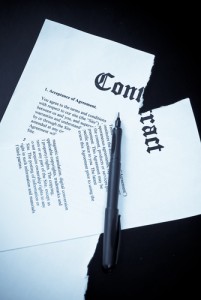 Hiring an attorney after an injury is one of the most important decisions you will need to make. Your lawyer will deal with the insurance company on your behalf, negotiate for a monetary settlement, investigate your claim and present your case to a judge or to a jury. If you feel your attorney is not able to provide you with the representation you need throughout this process, you may wish to change to a different lawyer. This is your right.
Hiring an attorney after an injury is one of the most important decisions you will need to make. Your lawyer will deal with the insurance company on your behalf, negotiate for a monetary settlement, investigate your claim and present your case to a judge or to a jury. If you feel your attorney is not able to provide you with the representation you need throughout this process, you may wish to change to a different lawyer. This is your right.
Switching Attorneys in Midstream
The American Bar Association provides information to clients on what to do if they are unhappy with their lawyer. When you decide on the best course of action, you need to consider whether you are actually unhappy with your attorney or whether your problem is with things that are outside of your lawyer’s control. Not every case is going to have the exact outcome you want, and there may be setbacks when making an injury claim.
If your lawyer is failing to provide skillful representation or if your attorney is not representing you in a way that you believe is appropriate, making a change may make sense. If your case simply experiences a setback, however, then you likely won’t want to change lawyers since the attorney that has been representing you may be better able to move forward with your claim.
Some of the reasons why you may need to change lawyers in the middle of your case include:
- Disagreements with your attorney over how to proceed with your claim
- Your attorney not listening to you or communicating with you
- Your attorney not being responsive to your legal needs
- Your attorney behaving in a way you believe is unethical
- Your lawyer failing to meet court deadlines or move your case forward
- Your attorney producing documents with errors
- Your lawyer failing to follow up with you, with witnesses or with insurance companies involved in your case
- Your lawyer waiting until the last minute to submit pleadings or respond to court documents
- A feeling of distrust or discomfort about aspects of your legal representation
Changing lawyers in the middle of a case can create complications because your new attorney will need to get up to the date on everything going on in your claim. Whenever possible, you should be sure to spend time interviewing your lawyer and reviewing his professional background before your claim begins so you can hire the right lawyer from the start.
If your attorney does let you down, you shouldn’t hesitate to reach out to him to let him know about your complaints and to see if you can find a way to move forward. When this becomes impossible, contact an experienced legal professional who can step in and be a better advocate for your interests.
 Las Vegas Injury Attorney Blog
Las Vegas Injury Attorney Blog

